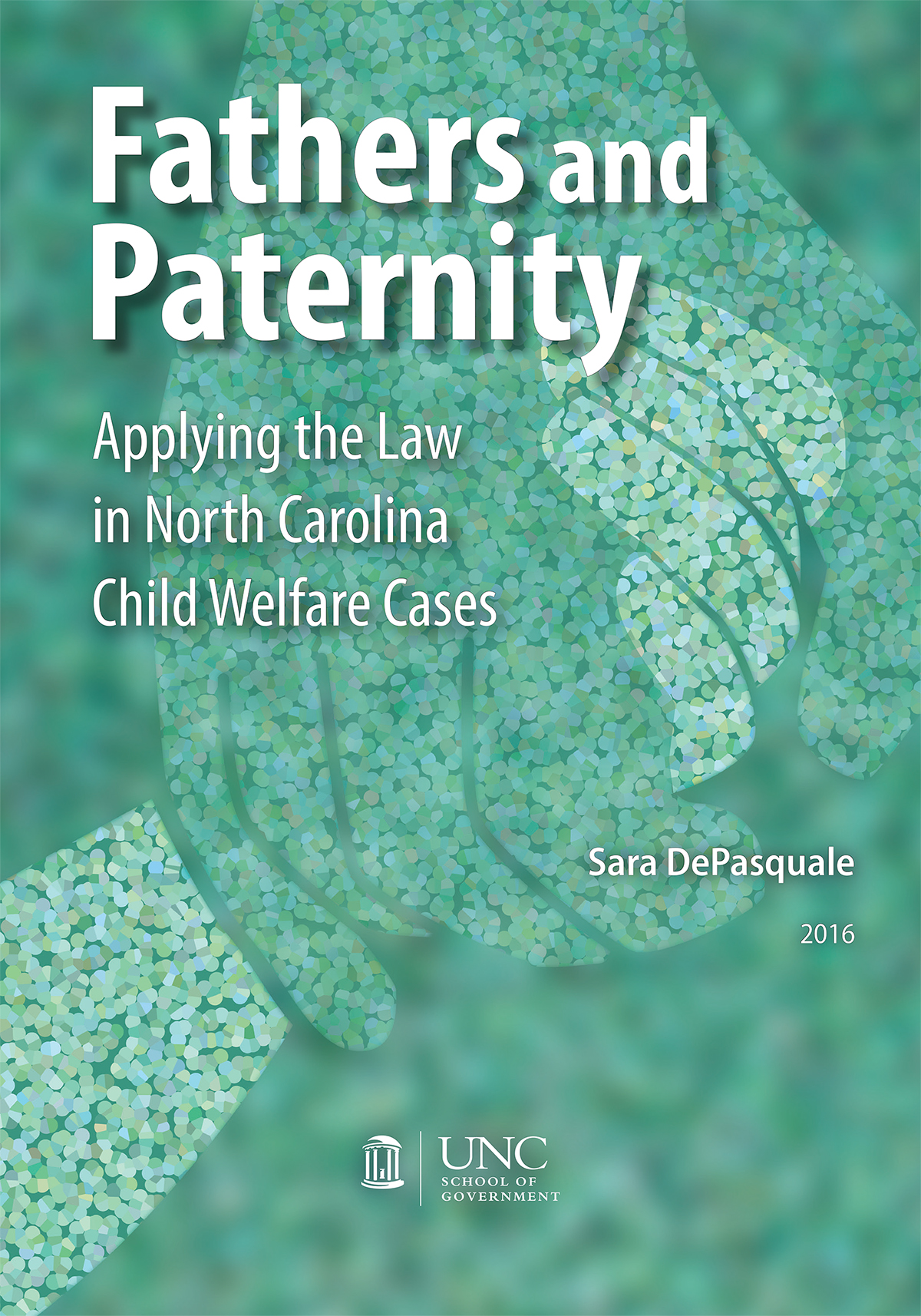Fathers and Paternity: Applying the Law in North Carolina Child Welfare Cases
When a child is the subject of an abuse, neglect, or dependency court action, parents are necessary parties to that proceeding. Yet, a child’s father is not always identified or included. Failure to involve a father in a timely manner has consequences that affect the child, the father, paternal relatives, the court procedure itself, and any necessary companion court actions, such as termination of parental rights and adoption. Finding and determining who is a child’s father is not always easy or straightforward. Sara DePasquale’s Fathers and Paternity helps a reader find and apply the various North Carolina laws that identify a child’s father, adjudicate paternity or non-paternity, and address a father’s involvement in these proceedings.
The discussion is organized into seven chapters that follow the flow of a child welfare action and address
- identifying and naming parties in the abuse, neglect, or dependency action;
- the impact of naming a man as a respondent father;
- identifying and locating a child's father;
- determining when paternity is an issue;
- adjudicating paternity in the abuse, neglect, or dependency action;
- the effect of a paternity adjudication; and
- when adoption is the child’s permanent plan, the role of fathers and paternity adjudications in the separate adoption proceeding (including the need to terminate parental rights).
Worksheets to assist the parties and court in determining whether diligent efforts were made to identify and/or locate a father and whether paternity is an issue are included. There is an appendix of selected excerpts of the various North Carolina statutes that relate to
- the role of fathers in child welfare proceedings,
- acknowledging paternity and/or establishing parentage, and
- naming fathers on children’s birth certificates.




